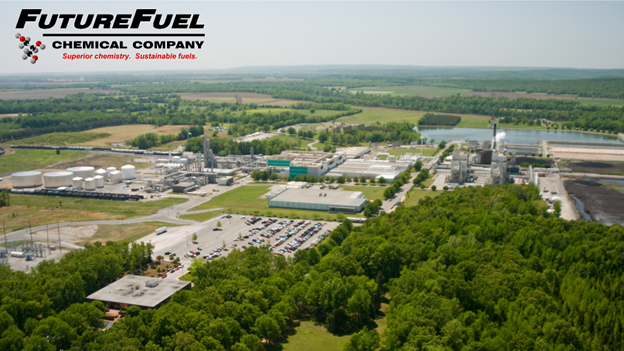
Sep 20, 2024
Selecting a Chemical Manufacturing Partner

FutureFuel
Chemical Company
Selecting a custom manufacturing partner is a critical decision that can significantly influence the success and efficiency of the product development process. It's essential to evaluate potential partners based on their ability to align with your specific needs and goals. Select a manufacturer that not only offers technical expertise and production capabilities but also demonstrates a commitment to safety, quality, and sustainability. By thoroughly assessing their track record, resources, and approach to collaboration, you can ensure a partnership that enhances your project's potential and drives its success.
Expertise and Capabilities:
- Chemistry expertise: Ensure the manufacturer possesses the necessary chemical knowledge and experience to handle your specific product requirements.
- Analytical testing: A robust analytical laboratory ensures product quality and compliance while providing quick turnaround times for both development and production testing.
- Scale-up expertise: Evaluate their history and ability to successfully scale-up production from lab to commercial scale quantities safely and reliably.
Engineering and Production:
- Process optimization: Evaluate the manufacturer's ability to optimize production processes for efficiency and cost-effectiveness.
- Equipment and facilities: Assess the equipment and facilities to ensure efficient and safe operations, as well as their capability to support diverse and specialized manufacturing needs.
- Capacity and flexibility: Assess the manufacturer's production capacity to meet your current and future needs, as well as their flexibility to manage varying production volumes.
Health, Safety, and Environmental:
- Safety and environmental compliance: Verify their commitment to employee safety and adherence to environmental regulations ensuring adherence to industry standards.
- Sustainability: Consider the manufacturer's environmental practices and commitment to sustainable operations to reduce their carbon footprint and optimize resource use.
- Waste management: Evaluate their procedures for managing and minimizing waste to support sustainable and efficient manufacturing practices.
Distribution:
- Supply chain management: Evaluate their ability to secure reliable and consistent supply of raw materials.
- Inventory management: A well-managed inventory system ensures timely delivery and minimizes stockouts.
- Logistics capabilities: Assess the manufacturer's distribution network and transportation options, including railcars and trucks to ensure timely delivery.
Customer Engagement:
- Collaboration: Assess their ability to work closely with customers to achieve project goals and address challenges.
- Customer service: Evaluate their responsiveness and support throughout the project lifecycle to ensure customer satisfaction and proactive problem resolution.
- Communication: Review their effectiveness in providing clear, timely, and accurate updates to keep all parties informed and aligned.
Conclusion
In conclusion, selecting the right chemical manufacturing partner is a strategic decision that must check all the boxes. By meticulously evaluating factors such as expertise, capabilities, infrastructure, and alignment with your business goals, you can forge a
News Room

AIChE Regional Conference
The 2024 AIChE Mid-America Regional Student Conference will take place April 5-7 in Fayetteville, Arkansas on the campus of the University of Arkansas.

Bradley Rodgers Elected to AIHA
Bradley Rodgers, MS, MBA, CIH, CSP elected to the Board of Directors of the American Industrial Hygienist Association (AIHA).

From Innovation to Production: FutureFuel Delivers a $15M+ Project at Commercial Scale
FutureFuel is proud to announce the successful completion of a $15M+ capital project that has taken a new product from laboratory development to full-scale, continuous commercial production.

